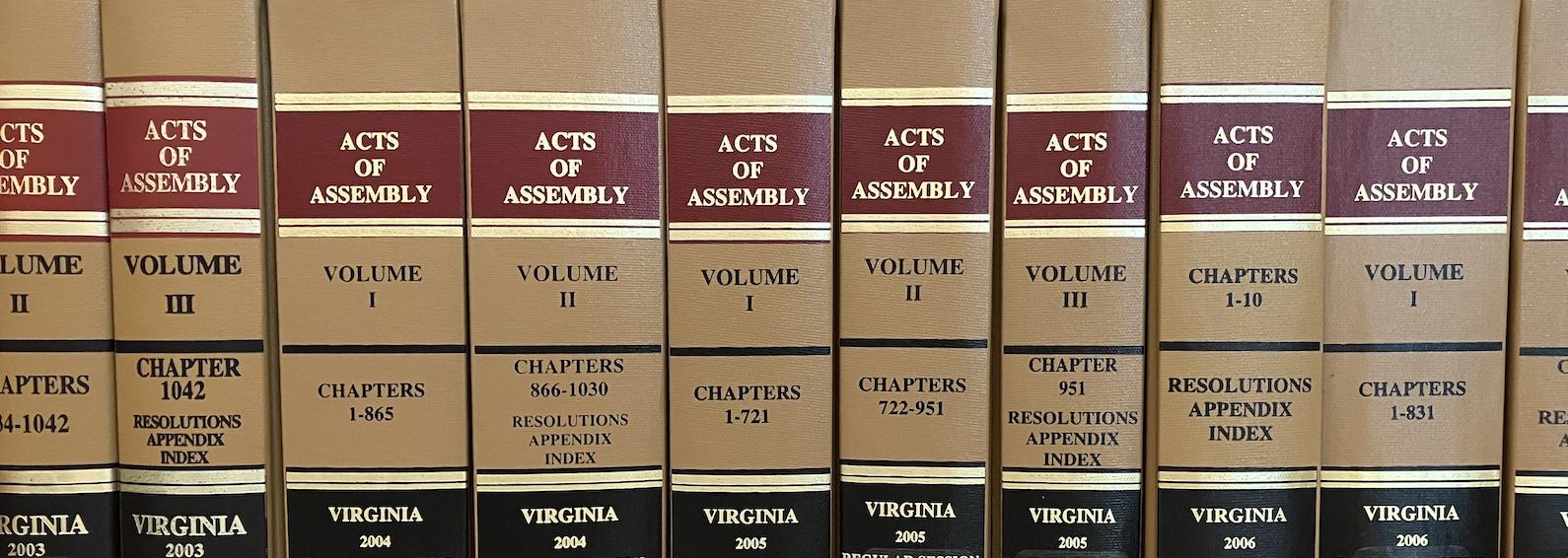Timely destruction applies to the disposition of public records created after July 1, 2006 by state agencies, local governments, and regional authorities.
Changes made during the 2006 regular session amended the Virginia Public Records Act (VPRA) through Senate Bill 461. The text below was added to
§ 42.1-86.1, Disposition of public records:
C. Each agency shall ensure that records created after July 1, 2006 and authorized to be destroyed or discarded in accordance with subsection A, are destroyed or discarded in a timely manner in accordance with the provisions of this chapter; provided, however, such records that contain identifying information as defined in clauses (iii) through (ix), or clause (xii) of subsection C of §18.2-186.3 shall be destroyed within six months of the expiration of the records retention period.What does destruction of records in a “timely manner” mean?We interpret “timely manner” to mean that records scheduled for destruction will be destroyed no later than the end of the calendar or fiscal year in which the retention period expires.
What are “records with identifying information?”Code of Virginia § 18.2-186.3C concerns records containing the following categories of identifying information:
* social security number
* driver's license number
* bank account numbers
* credit or debit card numbers
* personal identification numbers (PIN)
* electronic identification codes
* automated or electronic signatures
* passwords
* any other numbers or information that can be used to access a person's financial resources, obtain identification, act as identification, or obtain goods or services
If one category of identifying information is present in a record, that record must be destroyed within six months of the expiration of its retention period.
General and specific records retention schedules identify these records in the disposition method column. "Confidential Destruction" indicates a record series with identifying information.
Are there any exceptions?Exceptions include:
* audits
* litigation, pending or active
* investigations
* Virginia Freedom of Information Act (FOIA) requests
If records become part of an audit, litigation, or investigation, the retention period does not change. When the hold is lifted, the retention period continues as if the hold never occurred. Therefore, if a retention period expired while a record was on hold, the record should be destroyed immediately after the hold is lifted.
Destruction of recordsYou must ensure that information in confidential or privacy-protected records is protected from unauthorized disclosure through the ultimate destruction of the information. Destruction of confidential or privacy-protected paper records will be done by shredding, pulping, or incineration. Electronic records must be overwritten with meaningless data or the storage media must be physically destroyed.
Note: Commercial software applications are available that electronically shred records from media. Deletion of confidential or privacy-protected information in electronic storage media is not acceptable.
The destruction of records containing Social Security numbers are regulated by
17VAC15-120 et al. This statute provides specific guidelines for the destruction of paper and electronic records, including methods of destruction and vendor requirements.
